Xueli Geng
FedProc: Prototypical Contrastive Federated Learning on Non-IID data
Sep 25, 2021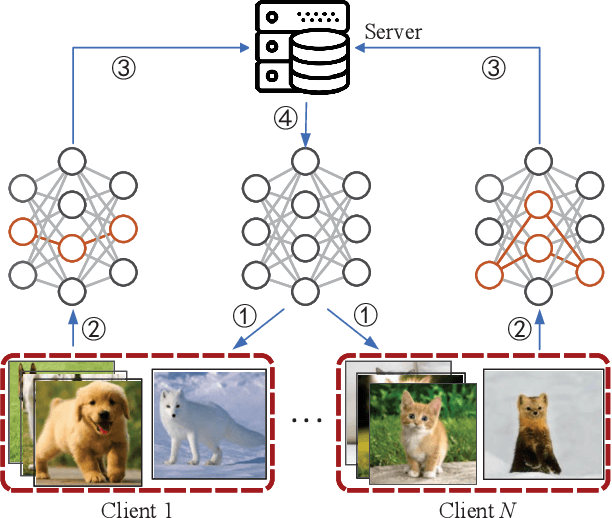
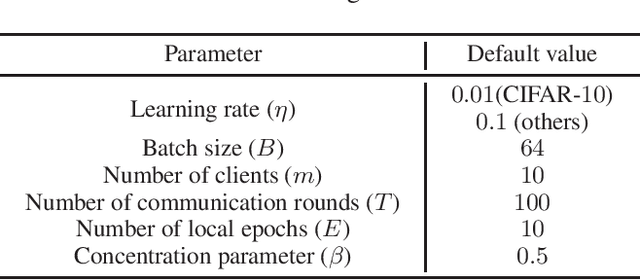

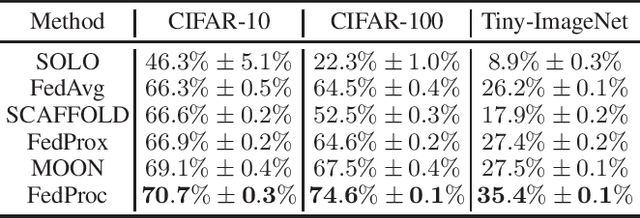
Abstract:Federated learning allows multiple clients to collaborate to train high-performance deep learning models while keeping the training data locally. However, when the local data of all clients are not independent and identically distributed (i.e., non-IID), it is challenging to implement this form of efficient collaborative learning. Although significant efforts have been dedicated to addressing this challenge, the effect on the image classification task is still not satisfactory. In this paper, we propose FedProc: prototypical contrastive federated learning, which is a simple and effective federated learning framework. The key idea is to utilize the prototypes as global knowledge to correct the local training of each client. We design a local network architecture and a global prototypical contrastive loss to regulate the training of local models, which makes local objectives consistent with the global optima. Eventually, the converged global model obtains a good performance on non-IID data. Experimental results show that, compared to state-of-the-art federated learning methods, FedProc improves the accuracy by $1.6\%\sim7.9\%$ with acceptable computation cost.
NTIRE 2021 Multi-modal Aerial View Object Classification Challenge
Jul 02, 2021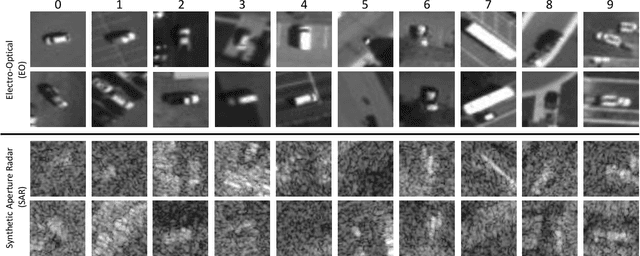
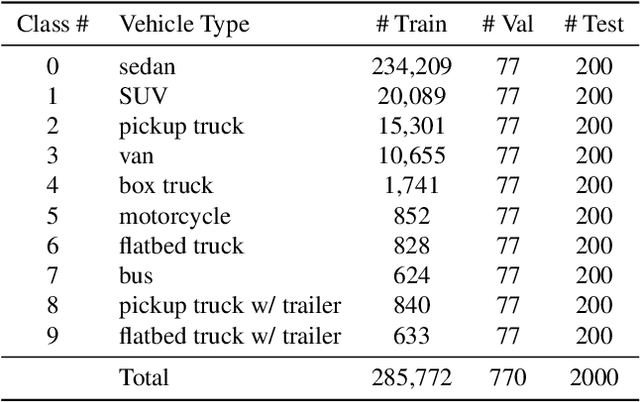
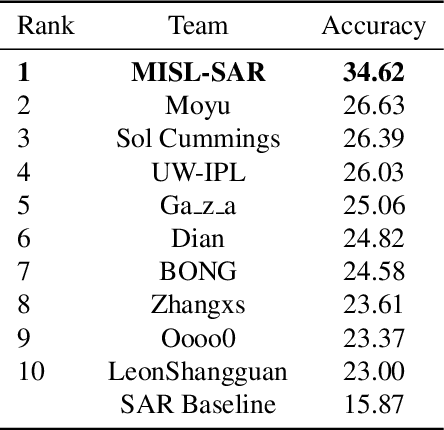
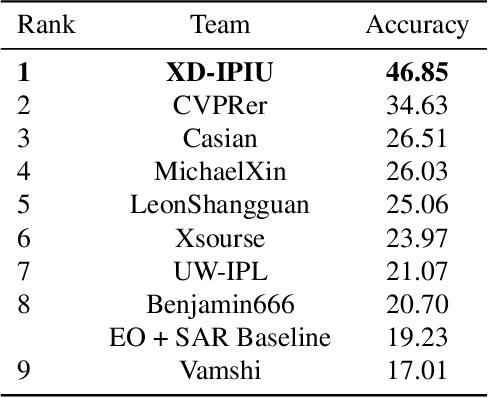
Abstract:In this paper, we introduce the first Challenge on Multi-modal Aerial View Object Classification (MAVOC) in conjunction with the NTIRE 2021 workshop at CVPR. This challenge is composed of two different tracks using EO andSAR imagery. Both EO and SAR sensors possess different advantages and drawbacks. The purpose of this competition is to analyze how to use both sets of sensory information in complementary ways. We discuss the top methods submitted for this competition and evaluate their results on our blind test set. Our challenge results show significant improvement of more than 15% accuracy from our current baselines for each track of the competition
* 10 pages, 1 figure. Conference on Computer Vision and Pattern Recognition
 Add to Chrome
Add to Chrome Add to Firefox
Add to Firefox Add to Edge
Add to Edge